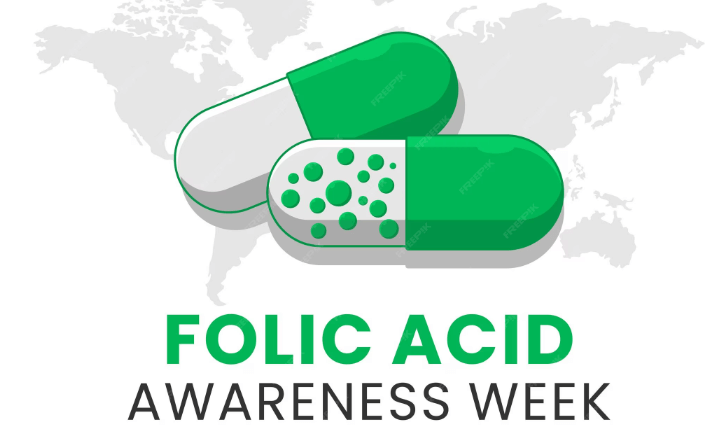C for Yourself: The Immense Benefits of Vitamin C in Your Daily Life

Step into a world of vitality and wellbeing with the immense benefits of vitamin C in your daily life. From boosting your immune system to promoting radiant skin, this supercharged vitamin is an essential nutrient that can transform your overall health.
Our brand understands the importance of incorporating natural remedies into your daily routine. That’s why we’ve crafted this guide to highlight the remarkable benefits that vitamin C brings to the table. Whether you’re seeking to banish pesky colds and flu, enhance your skin’s natural glow, or even reduce the risk of chronic diseases, vitamin C is the key to unlocking a healthier and happier you.
Packed with powerful antioxidants, vitamin C not only offers protection against harmful free radicals but also aids in collagen production, improving skin elasticity and warding off signs of aging. Additionally, its immune-boosting properties help keep illness at bay, allowing you to enjoy life to the fullest.
Don’t miss out on the incredible advantages of vitamin C. Join us as we explore the ways in which this remarkable nutrient can elevate your wellness journey and make a lasting impact on your daily life.
nbsp;
What is Vitamin C?
Vitamin C, also known as ascorbic acid, is a water-soluble vitamin that plays a crucial role in maintaining overall health. It is a powerful antioxidant that helps protect cells from damage caused by free radicals. Vitamin C is not produced naturally by the body, so it must be obtained through diet or supplements. It is found in various fruits and vegetables, making it easy to incorporate into your daily routine.
Vitamin C is essential for the growth, development, and repair of all body tissues. It is involved in many bodily functions, including the formation of collagen, absorption of iron, wound healing, and maintenance of cartilage, bones, and teeth. This vital nutrient also supports the immune system and helps the body fight off infections and diseases.
In addition to its antioxidant properties, vitamin C has been linked to various health benefits, making it an important component of a well-rounded diet.
nbsp;
Importance of Vitamin C for the body
Vitamin C is crucial for maintaining optimal health and wellbeing. It is involved in numerous biological processes that support the body’s overall function. One of the most significant roles of vitamin C is its contribution to collagen synthesis. Collagen is a protein that provides structure to the skin, bones, and connective tissues. Without sufficient vitamin C, collagen production is compromised, leading to various health issues.
Furthermore, vitamin C acts as an antioxidant, protecting the body from oxidative stress caused by free radicals. Free radicals are unstable molecules that can damage cells and contribute to the development of chronic diseases. By neutralizing these harmful molecules, vitamin C helps reduce the risk of conditions such as heart disease, cancer, and arthritis.
Vitamin C is also essential for a healthy immune system. It enhances the function of various immune cells, such as neutrophils and lymphocytes, which play a crucial role in defending the body against pathogens. Adequate vitamin C intake can help reduce the duration and severity of common illnesses like the common cold and flu.
nbsp;
Health benefits of Vitamin C
Vitamin C and immune system support
A strong immune system is essential for overall health and wellbeing. Vitamin C plays a vital role in supporting the immune system, helping to ward off infections and diseases. It enhances the production of white blood cells, which are responsible for fighting off pathogens and foreign invaders. Vitamin C also promotes the production of antibodies, proteins that help identify and neutralize harmful substances in the body.
Studies have shown that vitamin C supplementation can reduce the duration and severity of colds and flu. It can also enhance the body’s ability to recover from illness by strengthening the immune response. Regular intake of vitamin C is particularly beneficial for individuals with weakened immune systems, such as the elderly and those under chronic stress.
Vitamin C and skin health
Radiant, healthy skin is a reflection of overall wellbeing. Vitamin C plays a crucial role in maintaining skin health and appearance. It is a powerful antioxidant that helps protect the skin from damage caused by free radicals, such as pollution, UV radiation, and stress.
Vitamin C is involved in collagen synthesis, which is essential for maintaining skin elasticity and preventing signs of aging. It helps promote the production of collagen, which keeps the skin firm and reduces the appearance of wrinkles and fine lines. Regular intake of vitamin C can help improve skin texture, promote a youthful glow, and even fade dark spots and hyperpigmentation.
Additionally, vitamin C has been shown to reduce the risk of skin cancer. By neutralizing free radicals and enhancing the skin’s natural defense mechanisms, it helps protect against harmful UV radiation and environmental damage.
Foods rich in Vitamin C
Incorporating vitamin C-rich foods into your diet is an excellent way to ensure you’re getting an adequate intake of this essential nutrient. There are plenty of delicious options to choose from, making it easy to enjoy a variety of vitamin C-rich meals and snacks.
Citrus fruits, such as oranges, lemons, and grapefruits, are well-known for their high vitamin C content. Other fruits like strawberries, kiwi, and papaya are also excellent sources of this nutrient. Vegetables like bell peppers, broccoli, and spinach are packed with vitamin C as well.
Including a mix of these fruits and vegetables in your daily meals will provide you with a steady supply of vitamin C, supporting your overall health and wellbeing.
Vitamin C supplements and dosage recommendations
While it’s best to obtain vitamins and minerals from whole foods, vitamin C supplements can be a convenient option for individuals who have difficulty meeting their daily requirements through diet alone. Supplements come in various forms, including tablets, capsules, and powders.
The recommended daily intake of vitamin C varies depending on age, sex, and overall health. For most adults, a daily intake of 75-90 milligrams is sufficient to meet their needs. However, certain individuals, such as pregnant and breastfeeding women, smokers, and those with certain medical conditions, may require higher doses. It’s important to consult with a healthcare professional to determine the appropriate dosage for your specific needs.
When choosing a vitamin C supplement, opt for a reputable brand that uses high-quality ingredients. Look for products that are third-party tested and certified to ensure purity and potency.
Vitamin C and its role in preventing chronic diseases
The antioxidant properties of vitamin C make it a valuable ally in preventing chronic diseases. Oxidative stress, caused by an imbalance between free radicals and antioxidants in the body, is a significant contributor to the development of conditions such as heart disease, cancer, and diabetes.
Studies have shown that individuals with higher vitamin C levels in their blood have a reduced risk of chronic diseases. Vitamin C helps neutralize free radicals and protects against the oxidative damage that can lead to cellular dysfunction and disease development. By incorporating vitamin C-rich foods into your diet and ensuring an adequate intake, you can take proactive steps towards reducing your risk of chronic diseases.
Vitamin C myths and misconceptions
With the abundance of information available, it’s important to separate fact from fiction when it comes to vitamin C. There are several myths and misconceptions surrounding this essential nutrient that can lead to confusion.
One common myth is that high doses of vitamin C can cure the common cold. While vitamin C can help reduce the duration and severity of cold symptoms, it cannot cure the cold itself. It’s best to focus on maintaining a balanced diet and lifestyle to support overall immune function.
Another misconception is that taking excessive amounts of vitamin C is harmless. Like any other nutrient, vitamin C should be consumed in moderation. High doses of vitamin C can lead to digestive issues, such as diarrhea and stomach cramps. It’s important to follow the recommended dosage guidelines and consult with a healthcare professional for personalized advice.
nbsp;
Conclusion: Incorporating Vitamin C into your daily routine
Vitamin C is an essential nutrient with a wide range of health benefits. From supporting the immune system to promoting radiant skin, it plays a crucial role in maintaining overall health and wellbeing. By incorporating vitamin C-rich foods into your diet and, if necessary, supplementing with high-quality products, you can enjoy the remarkable advantages this nutrient has to offer.
Don’t wait to experience the transformative power of vitamin C. Start incorporating it into your daily routine and reap the rewards of a healthier and happier life. Remember to consult with a healthcare professional for personalized advice and recommendations based on your specific needs. Embrace the power of vitamin C and witness the positive impact it can have on your wellbeing.


























